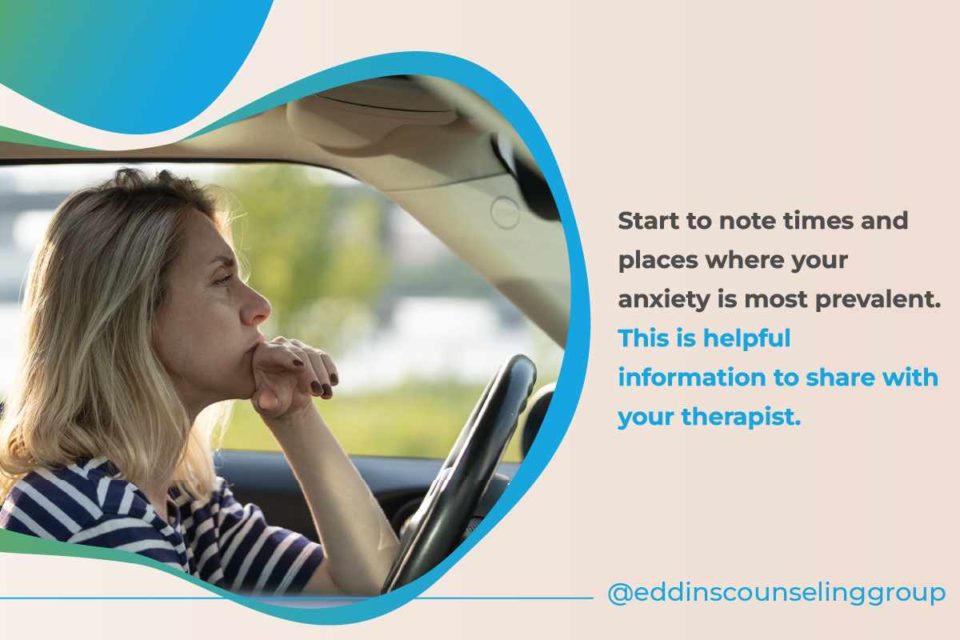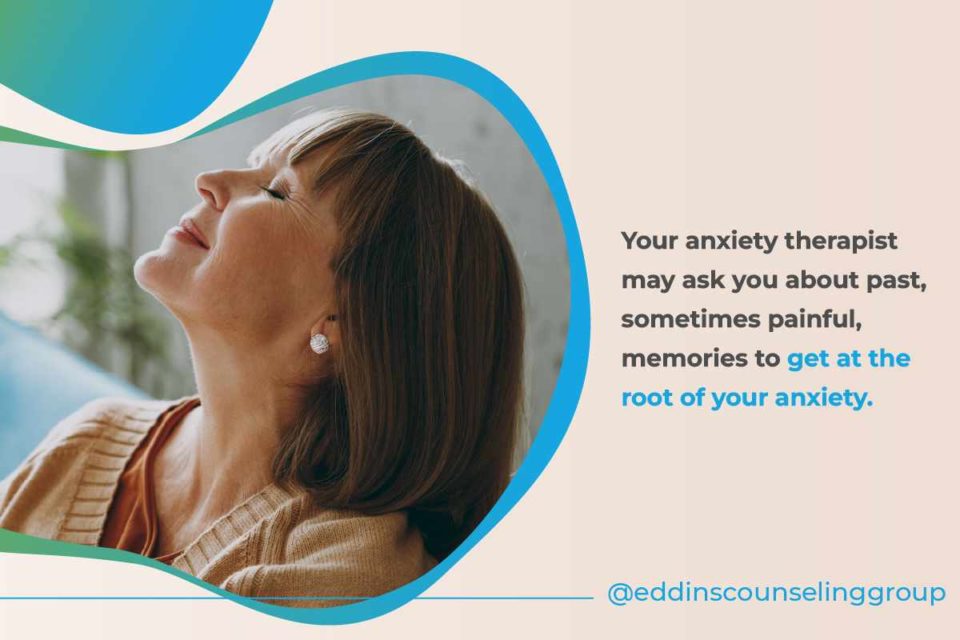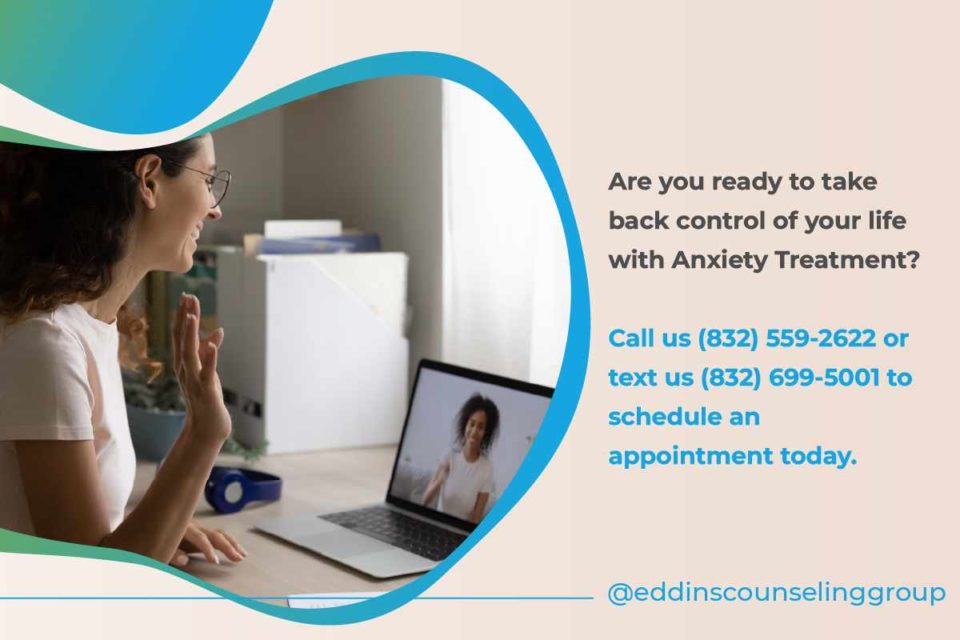January 16, 2023
7 Tips on Managing High Functioning Anxiety
Written by Sara Lane

Dealing with anxiety on a regular basis can feel overwhelming at times.
Common side effects of generalized anxiety include excessive worry, restlessness, muscle tension and physical discomfort, always feeling ‘on edge’, and significant amounts of stress.
However, not everyone deals with anxiety the same way.
“Every day is different. I don’t know how much my anxiety will play into my life until it happens.”
Anxiety as A Debilitating Disorder
For some, anxiety is a debilitating disorder that encompasses every aspect of their life. Some people may find it hard to function in their day-to-day activities due to the stress, worry, and tension that they feel.
It’s important to note that these people aren’t necessarily dealing with their anxiety unsuccessfully. Rather, everyone’s mental health and emotional experience are unique.
We want to issue a gentle reminder: try not to compare your progress or coping skills to anyone else’s, because no one truly experiences what it’s like to be you – except you.
High-Functioning Anxiety
For others, anxiety may be an internal nightmare, but outwardly they’re doing their best to keep a calm facade up. They may be able to work through the stress and fear that they are experiencing, and even attend social events or other responsibilities.
This is referred to as high-functioning anxiety.
Signs of high-functioning anxiety can look different from person to person, but may include:
- Being an overachiever
- Staying highly organized
- Very detail oriented
- An outgoing personality
- Super proactive
“Anxiety comes in waves most of the time. It really depends on what anxiety stimuli are present and how severe it is.”
If so, you may be experiencing high-functioning anxiety: a form of anxiety faced by many people who struggle with significant levels of anxiety but are able to excel at work, in their relationships, and in their personal lives.
So what do you do when feelings of fear and stress begin to overwhelm you?

Try these seven pro tips from anxiety experts who have real-life experience dealing with high-functioning anxiety:
1) You Are Not Alone, Reach Out to Someone You Can Trust
Anxiety and fear can instill a deep sense of isolation, and convince you that you’re all alone in your experience.
But you don’t have to suffer alone. When you’re feeling anxious, overstimulated, overwhelmed, unfulfilled, or alone, reach out to someone you can trust.
Some people find relief in talking to a trusted friend or family member when their anxiety spikes. Others seek mental health support from their therapist and use coping methods gained from their counseling sessions.
No matter who you reach out to, fight the urge to keep your emotions locked up where no one can reach them.
For those experiencing high-functioning anxiety, it can be a major temptation to feel as though they’ve got everything under control and they can ‘tough it out’ instead of reaching out for help.
After all, if you’re already crushing deadlines, meeting up with friends, and keeping your plants watered at home despite the burdensome anxiety you feel, you may ask, ‘What’s the point in reaching out when I’m already doing so well?’
Ask yourself though — are you enjoying the most out of your life? When anxiety hits, are you putting out fires on your own or do you feel a team of firefighters at your side – ready to step in at a moment’s notice?
While it can be tempting to try going it solo, avoid the lure of isolation. Instead, find someone you can trust, and the next time your anxiety spikes…tell them so.
2) Stay Active
To ward off anxiety, staying active in both mind and body is a great way to alleviate the harsher symptoms.
Regular exercise is an important factor in managing high-functioning anxiety. Choose an activity that sounds kind of fun, and make a routine to stick to it.
“Listening to music has also proven to be a good stronghold for me. If you can, reach out to someone and just get your worries off your chest.”
Here are some ideas to keep your mind and body active when worry strikes:
- Lifting weights
- Cardio
- Walking your pet
- Taking a dance class
- Swimming at your local YMCA
- Pickleball or squash
- Intramural sports (soccer, volleyball, basketball, softball, etc.)
No matter what kind of activity sparks your interest, getting up and active gets your mind moving and your thoughts away from feelings of anxiety.

3) Keep Your Mind Busy with Other Things
Another way to keep your anxiety at bay when it spikes is to ‘trick’ your mind into focusing on other things.
Is your anxiety on the rise?
Try getting to those chores you’ve been putting off. Dive deep into that stack of work on your desk and let those pages fill up your mind. Open minesweeper and get lost in an hour of sidestepping virtual bombs.
Finding a way to stay busy gets your mind on other things.
Somehow, your mind won’t have time to focus on the worry and stress you feel.
This may not be a long-term solution, but it can help alleviate stress in the moment. For lasting results and change at the root of the anxiety, try a meditative approach like therapy or medication (mentioned below).
4) Consider Going to Therapy for Your Anxiety
When you’re already experiencing social anxiety, jumping into counseling sessions with a stranger while talking about your anxiety may feel like you’re adding more fuel to the fire.
However, talk therapy is known to make a significant difference in combatting high-functioning anxiety. Be brave, and start a conversation with someone you can trust.
Even if you’re afraid that it might not help, prove yourself right!
5) Decide if Medication Treatment is Right for You
In addition to starting therapy, it’s a good idea to choose a treatment that’s right for you.
For some, that means using medication to counteract the physical and mental strain of anxiety.
“I was hesitant to take medication at first, but it did seem to help. The medicine that has been most useful is the medicine that calms me down in the moment – that has been very helpful at times.”
Medication helps by taking the underlying physical symptoms of anxiety out of the picture. It can help slow your heartbeat, relax tense muscles, and thereby incite feelings of calm.
Choosing to use medication to help mitigate the symptoms of anxiety can be a positive choice for many as they try other coping skills.
There are different types of anxiety medication. Some medications like Escitalopram work to quell anxiety over time, while others like Ativan and Xanax are taken in the moment to put out anxiety fires as they arise.
To use an asthmatic metaphor, think of it like this:
- Escitalopram = oxygen therapy
- Ativan / Xanax = an inhaler
Medication can be a process of trial and error, along with all other forms of treatment for high-functioning anxiety. However, getting started isn’t as hard as you might think.
If you’re questioning whether medication might be right for you, talk to your doctor or therapist today about trying it out.
6) Take it One Day at a Time
At the end of the day, remember to be gentle and gracious with yourself. When you’re experiencing a particularly difficult day with your anxiety, allow your body to take the time you need to recover.
You may feel that you have a lot of work to do, home responsibilities to fulfill, or friend groups that need to be maintained.
Remember — your mental health is a priority.
Be sure to give yourself the time you need to recoup from an anxiety spike. Instead of striving for perfectionism, affirm the work that it takes to deal with anxiety.
“On really anxious days, I just try taking it one step at a time. It’s easy to feel overwhelmed if you think too much about it. I try to get out of my head by doing extracurriculars.”
Encourage your hard work in taking care of yourself, and don’t let the burden of managing anxiety keep you from appreciating the effort you put in.
Your feelings are valid. Keep appreciating the time and effort that you are putting into your body, and the perseverance you see in yourself. You’re amazing.

7) Be Brave Enough to Try Something New
If you or someone you know is experiencing high-functioning anxiety, have the courage to try something new.
If any of these tips speak to you, try incorporating a new treatment into your daily routine. Whether that’s talking to a friend about your anxiety, choosing a new workout regimen, or starting an anxiety medication to counteract the symptoms.
Finding what works for you can have significant improvements in your daily quality of life. It may be a process of trial and error at first, but starting the journey is the first step.
“On bad days, taking medicine properly is important. The most important thing is your own mental attitude. Positive self-talk is crucial for this… And in the end, trust that God has you in his hands and that everything will be ok.”
However you start, allow yourself to start small. Even little changes can add up to improved mental health over time.
Next Steps
Along the way, be extra gentle with yourself. Give yourself an opportunity to breathe and experience your mental health without judgement.
Overall, remember that you’re not alone. If you feel that therapy is right for you, one of our Houston, Montrose, or Sugar Land anxiety therapists is ready to set up a session with you. Get started today: call us at (832) 559-2622 or text us at (832) 699-5001 to schedule an appointment today.
In case you missed it, here is Part 1 in our Anxiety Series:
5 Ways to Reduce Anxiety
Get instant access to your free ebook.
Grounding & Self Soothing
Get instant access to your free ebook.
Create Healthier Thoughts & Feelings
Get instant access to your free ebook.
Why You Feel This Way
Get instant access to your free ebook.

















